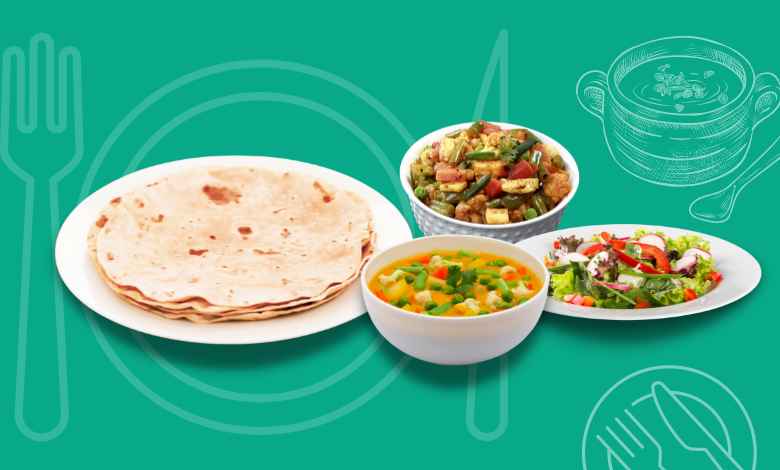Do you know what is the best time for dinner according to Ayurveda?
How often have you eaten something quick or skipped dinner because of your busy schedule?
How many days have you ordered dinner because you were too lazy to cook?
Or are you someone who always eats and then goes to bed? Have you ever considered how all of these factors may impact your health?
Here is some advice from Ayurveda about the value of a timely dinner, and this article gives you an idea about the best time for dinner according to Ayurveda
What does Ayurveda say about dinner?
The maintenance of a person’s general health relies greatly on the formation of good routines and habits. A key factor in this is the timely consumption of food.
The food should be consumed twice daily, i.e., in the morning and the evening, according to traditional Ayurvedic wisdom.
The meals must be had within the first three hours of the night in slightly less quantity than the morning meal, which is light and readily absorbed. Meals must be consumed after considering elements like Prakriti (each person’s constitution), the season, the prevailing dosha in each season, the person’s location, etc.
It is best to start with an appetizer (eg-ginger along with a piece of garlic) that stimulates digestive enzymes, stimulates hunger, and clears the throat and tongue before eating the main course. The main course should be chosen with the knowledge that half of the stomach should be filled with solid foods, one-fourth with liquid, and the remaining third should remain empty. After dinner, one must move slowly and deliberately because doing otherwise results in a stupor and a shorter lifespan. Given that Agni is located on the left side (stomach), above the umbilicus, for improved food digestion, caution must be taken when resting on the left side.
What is the best time for dinner according to Ayurveda?
What is the best time for dinner, according to Ayurveda? Even though the ancient texts of Ayurveda recommend eating twice daily, the average person nowadays consumes food at least three times per day. Food must be consumed regularly and only when you are truly hungry.
For dinner to be properly digested, it must be eaten at least two to three hours before bed. It has to be eaten before 8 p.m.
In the hectic world, people have night shifts and late-night jobs, and hence the above ideology can’t be followed. It is preferable for folks who work night shifts to eat easily digestible foods when hungry or after considering their dosha constitution.
Benefits of having dinner at the right time.
As you know, we are discussing the best time for dinner according to Ayurveda, and then it is also important to check the benefits of having dinner at the right time. When dinner is consumed at the appropriate time, it provides the following advantages:
- Give fullness or satisfaction to the body.
- Improves strength and makes the body study.
- Improves sleep.
- Improves digestion.
- Boosts the metabolism.
- Helps in reducing weight.
- Reduce the risk of diabetes, heart disease, acid reflux, hypertension, etc.
What should you include in a healthy dinner?
According to traditional Ayurvedic teachings, the day is divided into three halves based on the dominant dosha. Since the Kapha dosha mostly governs the last phase, the food ingested must balance this dosha.
- The diet plan must include low-carb, high-protein foods. Restricting the number of carbs consumed at night promotes better digestion and sleep. Chapatis, green vegetables, lentils, pulses, seasonal fruits, leafy vegetables, etc., can all be included in the meal.
- Opt for buttermilk rather than curd because curd tends to amplify the Kapha dosha. Therefore, a dosha imbalance will result if it is ingested at night. Therefore, it is advised to consume buttermilk.
- The use of spices like cinnamon, ginger, cardamom, and fenugreek, among others, aids in weight loss and gives food a fragrant flavor.
- Steer clear of foods that aggravate Kapha, such as curds, sweets, chocolate, cold drinks, oily foods, junk food, raw foods, and foods that are heavy to digest.
- If the person is having Kapha Prakriti, the food must be consumed in the early night itself, i.e., at least at 7 p.m. The food must be light, well-cooked, and warm.
- If the person has pitta Prakriti, the food must be consumed 2 to 3 hours before sleep, including ghee in meals.
- If the person is having Vata Prakriti, the food must be consumed 2 to 3 hours before sleep and can include meat products, sesame seeds, etc. The food must be warm and light and have carminative and appetizing properties.
What happens if your dinner is late?
Untimely dinner habits can lead to several health problems that, include:
- Heartburn and indigestion.
- Slows the body’s metabolism.
- Leads to obesity.
- Disrupts the sleep pattern.
- Increases the risk of metabolic disorders like obesity, diabetes, hypertension, etc.
- Increases the risk of acid reflux diseases.
- Increases the risk of chronic diseases like heart disease etc.
Tips for a healthy dinner
Include a low-carb, high-protein diet.
- Food must be consumed 2-3 hours before sleep.
- Include spices, buttermilk, leafy vegetables, lentils, green vegetables, and pulses in the diet.
- Avoid chocolate, sweets, curd, and cold and refrigerated food items.
- Food must be well-cooked, warm, and easy to digest.
Consider dosha, Prakriti, season, and place where you are residing before selecting the menu.
The importance of eating at the right times is emphasized by Ayurvedic science. You can live a healthy life if you correctly adhere to the Ayurvedic regimen.


